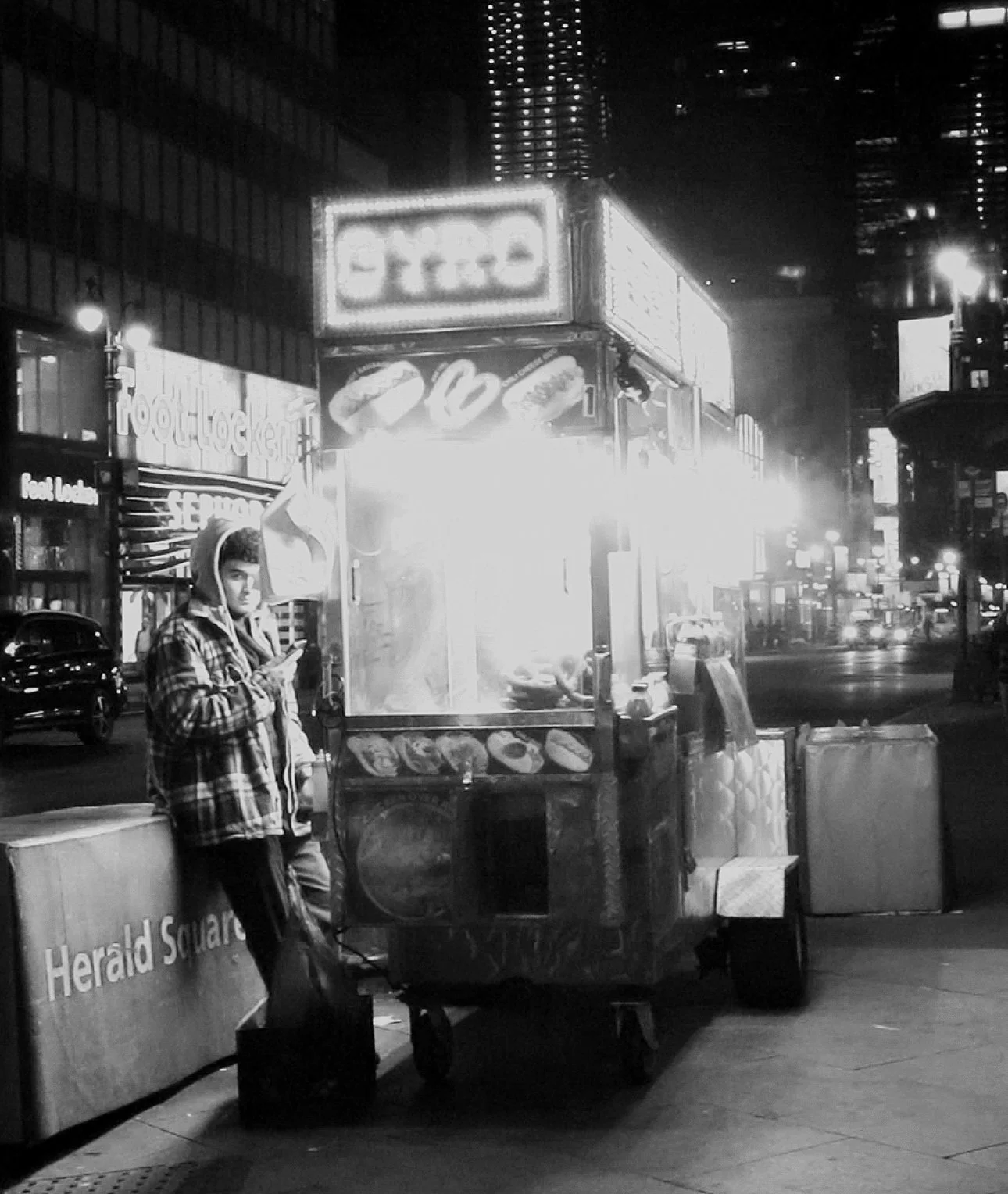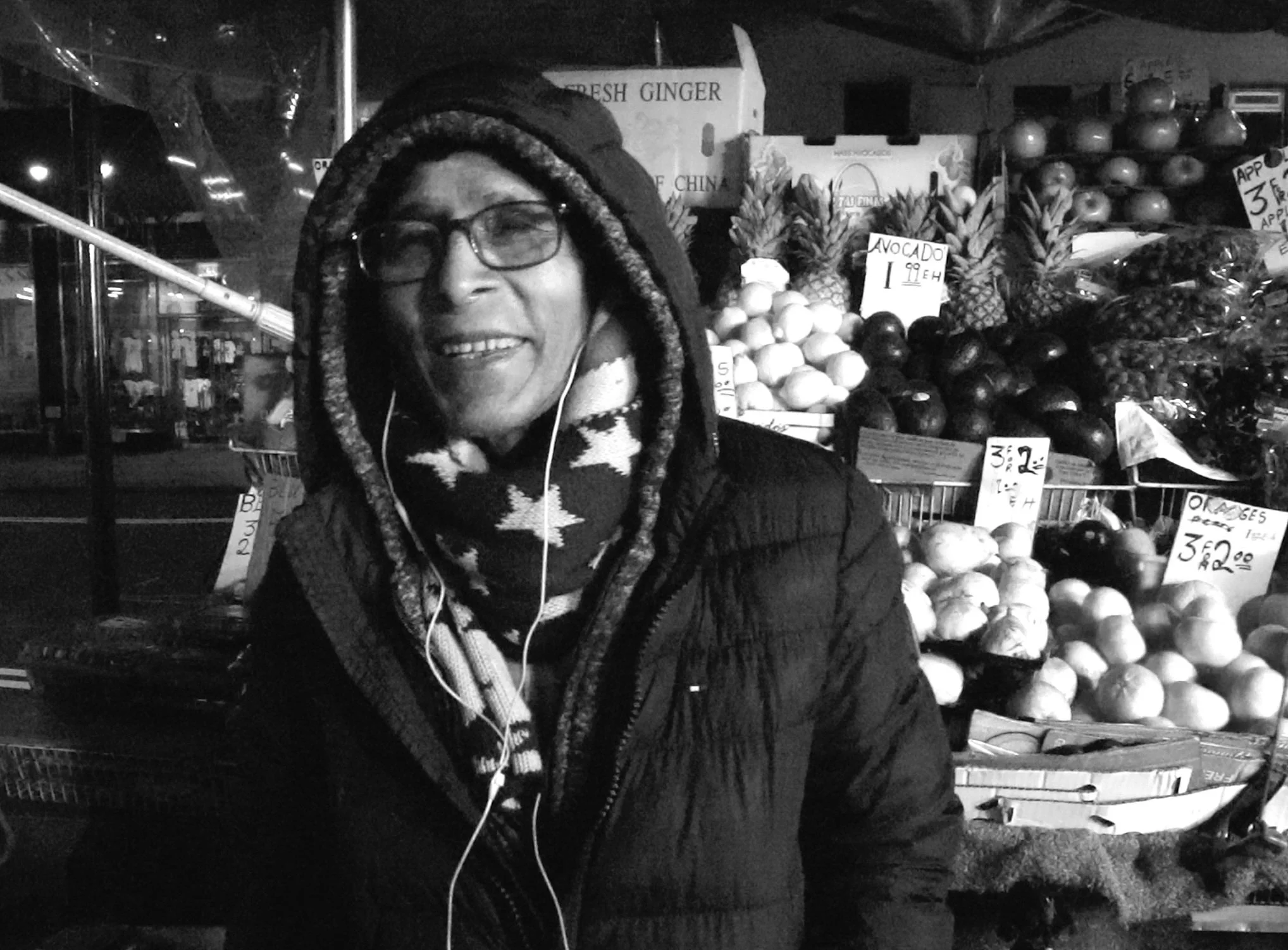Faces Behind the Food Cart
Conversations with New York City’s Street Vendors
New York City has 12,000+ food carts and vendors catering to thousands of people a day.
Let’s talk to them.
What is this project?
This project aims to bring power to an underrepresented community by showcasing intimate conversations in efforts to add a human element to those often overlooked. Using real footage of multiple vendors across Manhattan, this project is cause to consider larger mobilization against the ongoing crises of limited permit issuance and excessive policing faced by food cart workers.
Why this project?
Telling their stories and sharing personal struggles brings awareness to the gravity of this issue, and in turn, aids the marginalized communities that run New York City’s popular food cart scene.
A conversation with Reda Eslam Mohamed
A conversation with Magdy Ryad
A conversation with Redwan Ahmed
A conversation with Abdul Alim
About Faces Behind the Food Cart
Often overshadowed by their prevalence and popularity on New York City streets, food cart vendors’ stories are rarely showcased. Food carts spot avenues and streets across the city, yet there is frequent disregard for the individuals behind the cart given their normalcy in New Yorkers’ day-to-day life.
“At the end of the day, money is money. And that’s my understanding… everyone should respect everyone and everybody’s job: doesn’t matter if you work in the office or work in the street.” - Redwan Ahmed, Street Food Vendor
This spotlight on street-side vendors not only intends to explore the hidden lives of these workers but to uncover more about the immigrant and people-of-color experience. These marginalized voices are suppressed by civilian disrespect and criminalization - which lead to large fines, and in some cases, arrests. Excessively policing a minority community places a large strain, both financially and emotionally, on the thousands of vendors making money to support a family. In 2021, The Department of Consumer and Worker Protection (DCWP) was granted the agency to enforce street vendor regulations, a shift from NYPD handling this task. Unfortunately, under the supervision of the DCWP, vendors are seen receiving more tickets. Street vending tickets increased by 33% the first year after the DCWP took over street vendor enforcement, as arrests and tickets were issued by both the DCWP and occasionally, the NYPD as well.
Street vendors are ticketed and arrested for minute infractions such as vending too close to a building or curb. These actions result in large fines, with vendors without a permit facing charges of up to $1000. Since the Koch administration, the amount of permits given to food carts has remained at a fixed number of around 5,000. In January 2021, City Council introduced a law that supposedly would issue 445 permits every year until 2032. It was expected that the Department of Health and Mental Hygiene would begin giving these permits to vendors in July 2022, yet there has been no progress other than creating waiting lists months after. As of 2023, Mayor Adams has decided to let the NYC Department of Sanitation enforce street vendor regulations, claiming in a written statement to the Daily News:
“With DSNY becoming responsible for enforcing regulations around street vending, New Yorkers will enjoy improved quality of life, more accessible and cleaner streets, and a more welcoming city.” - Mayor Eric Adams
Rather than emphasizing vendor summonses over permit issuance, New York City must realign legislative priorities to support its essential workers. Extortionate food cart ticket prices unjustly punish a community of mainly immigrants and people of color who are already at a socioeconomic disadvantage. The main goal for food cart vendors is to provide for themselves and their families, thus excessive ticketing and policing causes large instability to their main source of income. Serving thousands of people on a daily basis, dealing with civilian harassment and disrespect alongside food vendor regulations poses difficulties to the mental and physical well-being of both food cart workers and their families.
“You have to work. Everything is hard, it’s not easy. To take care of yourself, family - you have to work.” - Magdy Ryad, Street Food Vendor
Taking an in-depth look at the rarely discussed yet long-standing mistreatment of hardworking food cart vendors will show reason to reform regulations and deconstruct how we view these essential workers.
—
Having conversations with vendors of different ages and backgrounds allowed for a variety of experiences and opinions to be showcased. The art of conversation allows for an intimate space to discuss positive and negative experiences, and, in general, life. Taking into consideration the fact that many vendors don’t speak English nor want their face on camera, I appreciate those who participated in this project.
To Reda, Redwan, Abdul, and Magdy: Thank you for having a conversation with me.
Resources
The Street Vendor Project is a project that works directly with 2,000+ vendor members to create permanent change in New York City. The organization partakes in numerous activities that push for the wellbeing of street cart vendors, ranging from educating vendors on their legal rights to connecting food vendors with small business trainings as to promote business growth.
Donate to SVP / SVP’s link list
The Food Chain Workers Alliance is comprised of worker-based organizations and aims to highlight the skills and labor of all food workers. This coalition actively aids the 375,000 food workers across the United States and Canada, with an overarching goal to improve these workers wages and work conditions. The organization is primarily run by women, people of color, immigrants, and other frontline workers.




